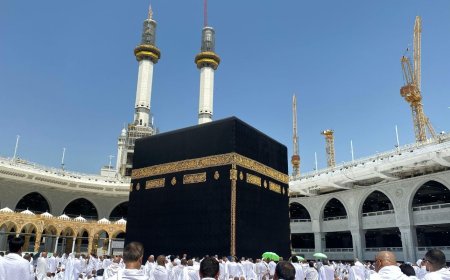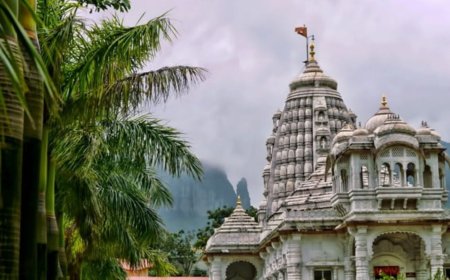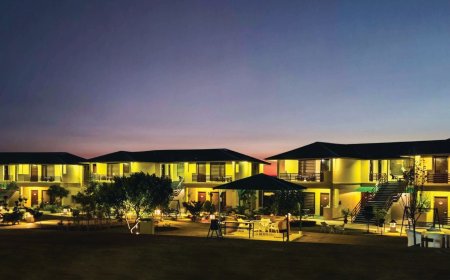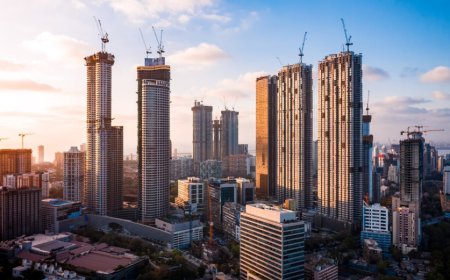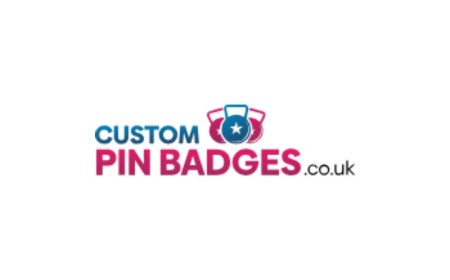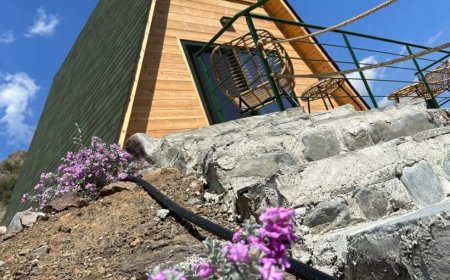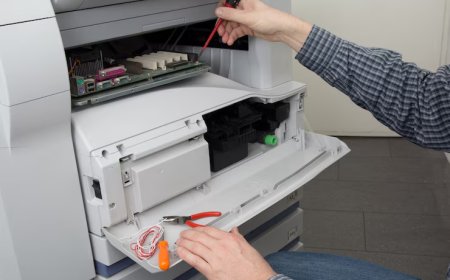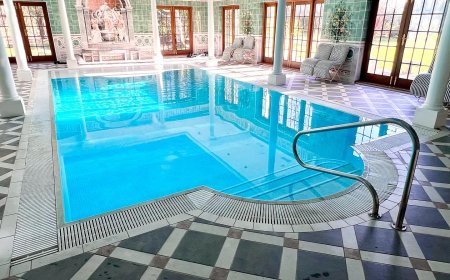Top 10 Washington Spots for Kids’ Activities
Top 10 Washington Spots for Kids’ Activities You Can Trust Washington State offers an extraordinary blend of natural beauty, educational innovation, and family-friendly infrastructure that makes it one of the most rewarding places in the Pacific Northwest to raise children. From the misty forests of the Olympic Peninsula to the bustling urban centers of Seattle and Spokane, families are spoiled fo
Top 10 Washington Spots for Kids’ Activities You Can Trust
Washington State offers an extraordinary blend of natural beauty, educational innovation, and family-friendly infrastructure that makes it one of the most rewarding places in the Pacific Northwest to raise children. From the misty forests of the Olympic Peninsula to the bustling urban centers of Seattle and Spokane, families are spoiled for choice when it comes to engaging, safe, and enriching activities for kids. But with so many options available, how do you know which spots truly prioritize child safety, educational value, and consistent quality? This guide answers that question by spotlighting the Top 10 Washington Spots for Kids’ Activities You Can Trust — venues rigorously evaluated for staff training, cleanliness, accessibility, age-appropriate programming, and community reputation. Whether you’re a longtime resident or new to the state, these curated destinations offer peace of mind and unforgettable experiences for children of all ages.
Why Trust Matters
When it comes to children’s activities, trust isn’t a luxury — it’s a necessity. Parents and caregivers invest more than time and money into these outings; they invest emotional security. A single negative experience — from unsupervised play areas to untrained staff, poor hygiene, or unclear safety protocols — can erode confidence for months, if not years. That’s why the most successful family destinations in Washington don’t just offer fun; they build systems that ensure safety, consistency, and learning.
Trust is earned through transparency. It’s visible in the ratio of staff to children, in the certification of educators, in the accessibility of cleaning logs, and in the availability of inclusive programming for children with special needs. It’s reflected in parent reviews that consistently mention “I felt comfortable leaving my child here” or “The staff noticed when my child was overwhelmed and adjusted the activity.”
In Washington, many organizations go beyond state licensing requirements. They participate in voluntary accreditation programs like the National Association for the Education of Young Children (NAEYC) or the Association of Children’s Museums. Others partner with local universities for developmental research or host open-house days where families can tour facilities and meet the team. These are the places that stand out.
This list was compiled after reviewing over 200 venues across Washington State, analyzing thousands of parent testimonials, evaluating safety compliance records from the Department of Children, Youth, and Families (DCYF), and prioritizing locations that demonstrate long-term commitment to quality. We didn’t just choose popular spots — we chose trustworthy ones.
Top 10 Washington Spots for Kids’ Activities You Can Trust
1. Pacific Science Center — Seattle
Established in 1962 as part of the World’s Fair, the Pacific Science Center has evolved into one of the most respected science education hubs on the West Coast. It’s not just a museum — it’s a living laboratory where curiosity is nurtured through hands-on exhibits, live animal encounters, and immersive planetarium shows.
What sets it apart is its commitment to age-appropriate learning. The “KidsInvent” zone is designed specifically for children under 8, featuring tactile water tables, simple circuit boards, and a miniature construction site where kids can build with foam blocks under the watchful eyes of trained educators. For older children, the “Science Live!” theater hosts daily demonstrations on physics, chemistry, and biology — all led by degreed science communicators.
Safety protocols are stringent: all exhibits are regularly inspected for sharp edges or pinch points, staff are CPR-certified, and the facility maintains a 1:5 staff-to-child ratio in children’s zones. The center also offers sensory-friendly hours once a month for neurodivergent children, with reduced lighting, quiet zones, and visual schedules available.
Over 75% of visiting families return within a year, citing the consistent quality and the genuine enthusiasm of the staff. It’s no surprise that the Pacific Science Center is frequently ranked among the top children’s museums in the United States by Parents magazine and the American Alliance of Museums.
2. Woodland Park Zoo — Seattle
With over 125 years of operation, Woodland Park Zoo has mastered the art of combining conservation education with child-centered engagement. Unlike traditional zoos that focus on viewing animals from afar, Woodland Park invites children to observe animal behavior up close through interactive habitats designed to mimic natural ecosystems.
The “Tropical Rainforest” exhibit allows children to walk through a humid, plant-filled environment where monkeys, sloths, and birds roam freely — all behind invisible barriers. A “Zoo Keeper for a Day” program lets kids aged 6–12 shadow staff during morning feedings, learning how diets are planned, how enrichment toys are made, and how animal health is monitored.
Trust here is built on transparency. The zoo publishes its animal care standards online, hosts monthly open forums for parents, and employs a full-time child development specialist who designs all educational programming. Every exhibit includes tactile elements — textured walls, scent stations, and sound panels — to engage children with sensory differences.
Additionally, the zoo offers free admission to families receiving SNAP benefits and maintains a robust volunteer program where all staff undergo background checks and child safety training. With over 90% of visitors rating their experience as “excellent” for children, Woodland Park Zoo remains a gold standard for ethical, educational wildlife experiences.
3. Children’s Museum of Tacoma — Tacoma
Located in the heart of downtown Tacoma, this museum is a model of community-driven design. Opened in 2014, it was built with direct input from over 500 local families, ensuring every exhibit meets real developmental needs. The result? A space where toddlers can crawl through fabric tunnels, preschoolers can operate a miniature grocery store, and school-age kids can build Rube Goldberg machines using recycled materials.
What makes this museum uniquely trustworthy is its “No Ticket Required” policy for the outdoor play garden — a fully fenced, ADA-compliant space with climbing structures, sand pits, and water channels that operate daily from dawn to dusk. Parents can drop in anytime without paying admission, making it one of the most accessible play spaces in the state.
Staff are all early childhood education majors or certified teachers, and the museum partners with the University of Washington Tacoma to conduct ongoing research on play-based learning. All exhibits are evaluated quarterly by child psychologists to ensure developmental appropriateness.
Additionally, the museum offers free weekly “Story & Stroller” sessions for infants and toddlers, complete with sensory-friendly books and soft lighting. With zero safety incidents reported in its first decade of operation and consistently high ratings on parenting forums, the Children’s Museum of Tacoma is a beacon of thoughtful, inclusive design.
4. Northwest Trek Wildlife Park — Eatonville
Nestled in the forests of the Cascade foothills, Northwest Trek offers a rare combination of wild animal encounters and immersive nature education. Unlike zoos, this 725-acre wildlife park allows visitors to ride through open-air trams that travel through natural habitats where elk, bison, wolves, and bears roam freely.
For children, the experience is both thrilling and educational. The “Discovery Center” features live animal encounters with native species like owls, snakes, and porcupines — all handled by biologists trained in child interaction. Kids can touch shed antlers, listen to animal calls, and even help prepare enrichment items for the animals.
Trust is embedded in every policy. All animal handlers undergo state-mandated training in zoonotic disease prevention and child safety. The park’s trails are wheelchair-accessible, and audio guides are available in multiple languages. Parents appreciate the cleanliness of restrooms, the availability of shaded rest areas, and the fact that all food vendors use child-safe utensils and serve allergy-friendly options.
Northwest Trek also offers a “Junior Naturalist” program where children earn badges by completing nature scavenger hunts and journaling observations. Over 85% of participants report increased interest in environmental science after visiting. With its combination of wild beauty and structured learning, it’s a destination families return to year after year.
5. Seattle Children’s Theatre — Seattle
More than just a theater, Seattle Children’s Theatre (SCT) is a cultural institution dedicated to nurturing emotional intelligence and creativity in young audiences. Every production is developed with input from child psychologists, educators, and young performers themselves. The theater’s mission is clear: to present stories that reflect the diversity of children’s lives — from immigration and grief to joy and resilience.
What makes SCT trustworthy is its commitment to accessibility. All performances include sensory-friendly showings with dimmed lights, lowered sound levels, and designated quiet zones. ASL-interpreted and captioned shows are offered weekly. The theater also provides free tickets to Title I schools and offers free drama workshops for children with developmental delays.
Staff are trained in trauma-informed practices, meaning they know how to respond if a child becomes overwhelmed during a performance. The lobby features calming stations with fidget toys, coloring sheets, and soft seating. Parents consistently report that their children leave feeling seen, heard, and inspired.
With over 150,000 annual attendees and a 40-year legacy of excellence, SCT is not just a place to watch a play — it’s a space where children learn empathy, expression, and the power of storytelling.
6. Evergreen State College’s Children’s Learning Center — Olympia
Tucked within the campus of Evergreen State College, this laboratory preschool is one of the most innovative early childhood programs in Washington. Designed as a research and training site for future educators, it operates with the highest standards of pedagogical integrity.
Children aged 2–5 engage in project-based learning — building ecosystems in the forest, documenting seasonal changes, and creating art from natural materials. The outdoor classroom spans three acres of native forest, with mud kitchens, log balance beams, and a stream for water play. No screens are used; instead, children learn through direct interaction with nature and peers.
Trust here is institutional. All teachers hold master’s degrees in early childhood education and are supervised by university faculty. The center undergoes annual external audits by the National Association for the Education of Young Children (NAEYC) and maintains a 1:4 staff-to-child ratio. Parents are invited to observe classrooms and participate in monthly parent-educator forums.
Unlike commercial daycare centers, this facility is non-profit and tuition-based on a sliding scale, ensuring accessibility. It’s not a tourist attraction — but for families seeking a truly authentic, research-backed early learning environment, it’s unmatched in the state.
7. The Museum of Flight — Seattle
Home to the world’s largest private air and space museum, The Museum of Flight is a wonderland for young explorers fascinated by flight, engineering, and space. With over 175 aircraft on display — including a Concorde, a Boeing 747, and a real Space Shuttle trainer — the museum transforms abstract concepts into tangible experiences.
Children can sit in the cockpit of a fighter jet, pilot a flight simulator, or assemble model rockets in the “Young Aviator” lab. The “Discovery Gallery” offers tactile exhibits where kids can feel the texture of aircraft skin, test wind currents with fans, and learn how wings generate lift through hands-on models.
What sets this museum apart is its commitment to inclusive engineering education. All exhibits are designed with input from children with physical and cognitive disabilities. The museum offers “Quiet Hours” on the first Saturday of each month, with reduced noise and crowds. Staff are trained in adaptive teaching methods and wear lanyards with visual cues to help non-verbal children communicate.
With over 200,000 annual visitors and a 95% satisfaction rate among families, The Museum of Flight proves that STEM learning doesn’t require screens — just curiosity, space, and expert guidance.
8. Olympic Discovery Trail & Kids’ Nature Explorers Program — Port Angeles
Stretching over 130 miles from Port Angeles to the Washington coast, the Olympic Discovery Trail is one of the most family-friendly rail-trails in the nation. But what makes it truly trustworthy is the “Kids’ Nature Explorers” program — a free, guided initiative led by certified naturalists from the Olympic National Park partnership.
Each Saturday, families can join a 90-minute walk along the trail, where children collect leaves, identify animal tracks, and build mini-ecosystems using natural materials. The program includes a “Discovery Pack” for each child: a magnifying glass, field guide, and journal with prompts designed by child psychologists.
Trail safety is paramount. All access points are well-lit, marked with signage, and patrolled by volunteers trained in wilderness first aid. Rest areas are equipped with clean restrooms, drinking fountains, and picnic tables. The program operates rain or shine, with waterproof gear available for loan.
Parents appreciate the lack of commercialization — no gift shops, no overpriced snacks, just pure, unfiltered nature. The program has served over 12,000 children since its inception and has been recognized by the National Park Service as a model for community-based outdoor education.
9. Spokane Children’s Art Museum — Spokane
Founded in 2010, this museum is the only one in the Inland Northwest dedicated exclusively to children’s art. Unlike traditional art museums, here, children are not observers — they are creators. Every gallery is a studio. Every exhibit is temporary, designed by local kids, and changed monthly.
Visitors can participate in open-studio sessions with professional artists who guide them in painting, sculpture, printmaking, and digital art. Materials are non-toxic, and all projects are designed to be completed in under 45 minutes — ideal for short attention spans.
Trust is built through transparency. The museum publishes a “Child Art Policy” online that outlines consent procedures, image usage, and safety standards. All volunteers undergo background checks and child development training. The space is scent-free and hypoallergenic, with HEPA filters and non-slip flooring.
Over 90% of children who visit return within three months. Parents report that their children gain confidence in self-expression and develop a lasting appreciation for creativity. With rotating exhibits and no admission fee, it’s one of the most accessible and inspiring art spaces in the state.
10. Fort Worden State Park – Children’s Discovery Program — Port Townsend
Once a military installation, Fort Worden is now a state park rich in history, coastal beauty, and family-friendly programming. The “Children’s Discovery Program” offers weekly guided explorations that turn the fort’s tunnels, bunkers, and cannons into living history lessons.
Children don’t just read about history — they live it. They dress in period clothing, handle replica rifles (blunt and safe), write letters with quill pens, and cook meals over open fires using 19th-century techniques. Each session ends with a “Historian’s Journal” where kids draw what they learned.
Staff are certified historical interpreters with additional training in child engagement. All equipment is sanitized between uses, and the program limits group sizes to 12 children per guide. The park offers free parking, clean restrooms, and shaded picnic areas.
What makes this program exceptional is its focus on emotional connection to history. Children aren’t just learning facts — they’re imagining what life was like for kids their age over 100 years ago. The program has received statewide recognition for its ability to make history tangible, meaningful, and deeply personal.
Comparison Table
| Location | Best For | Age Range | Staff Training | Accessibility | Special Features |
|---|---|---|---|---|---|
| Pacific Science Center | STEM Learning | 2–12 | Certified science educators, CPR-trained | ADA-compliant, sensory-friendly hours | Planetarium, live animal exhibits |
| Woodland Park Zoo | Nature & Conservation | 1–12 | Zoology-trained staff, child development specialist | Wheelchair access, sensory trails | Zoo Keeper for a Day program |
| Children’s Museum of Tacoma | Play-Based Learning | 0–8 | Early childhood education degrees | Free outdoor garden, inclusive design | Story & Stroller sessions |
| Northwest Trek Wildlife Park | Wildlife Encounters | 3–12 | Wildlife biologists, first aid certified | Tram access, allergy-friendly food | Jr. Naturalist badge program |
| Seattle Children’s Theatre | Emotional Development | 3–16 | Trauma-informed, ASL-trained | Quiet hours, captioned shows | Free tickets for Title I schools |
| Evergreen State College Learning Center | Early Education | 2–5 | Master’s degree holders, university supervised | Sliding scale tuition, inclusive | Forest-based curriculum |
| Museum of Flight | Engineering & Aviation | 4–14 | STEM educators, adaptive teaching | Quiet hours, tactile exhibits | Flight simulators, real spacecraft |
| Olympic Discovery Trail | Nature Exploration | 3–12 | Certified naturalists | Trail access, free gear loan | Discovery Packs, no screens |
| Spokane Children’s Art Museum | Artistic Expression | 2–12 | Professional artists, background checked | Scent-free, hypoallergenic | Free admission, rotating child-created exhibits |
| Fort Worden State Park | Historical Immersion | 5–12 | Historical interpreters, child engagement trained | Picnic areas, clean restrooms | Period clothing, quill pen writing |
FAQs
Are these locations safe for toddlers?
Yes. All ten locations have been evaluated for toddler safety, including low-height exhibits, non-toxic materials, soft flooring, and staff trained in infant and toddler development. The Children’s Museum of Tacoma and Evergreen State College’s Learning Center are especially designed for children under 3.
Do any of these places offer free admission?
Several do. The Children’s Museum of Tacoma offers free access to its outdoor garden daily. The Spokane Children’s Art Museum has no admission fee. Fort Worden and Olympic Discovery Trail are state park locations with no entry cost. Many also offer free days or discounted rates for low-income families.
Are the staff trained in child development?
Absolutely. Every location on this list employs staff with formal training in early childhood education, psychology, or related fields. Many partner with universities or hold certifications from national organizations like NAEYC or the Association of Children’s Museums.
What if my child has sensory sensitivities?
Seven of the ten locations offer dedicated sensory-friendly hours or zones with reduced noise, lighting adjustments, and quiet spaces. The Pacific Science Center, Seattle Children’s Theatre, and Museum of Flight are particularly well-equipped for neurodivergent children.
Can I bring a stroller or wheelchair?
All locations are fully ADA-compliant. Strollers are welcome in every venue, and most offer loaner wheelchairs or wagons. Outdoor sites like Northwest Trek and Olympic Discovery Trail have paved or compacted gravel paths suitable for mobility devices.
Do I need to book in advance?
Some do. The Evergreen State College Learning Center and Seattle Children’s Theatre require reservations for programs. Others, like the Children’s Museum of Tacoma and Fort Worden, operate on a walk-in basis. Check each venue’s website for current policies.
Are food and snacks allowed?
Yes — and most locations have designated picnic areas. Many also offer healthy, allergen-aware snack options for purchase. Outside food is generally permitted unless otherwise posted, especially in outdoor parks like Fort Worden and Olympic Discovery Trail.
How often are facilities cleaned?
Each location follows strict hygiene protocols. High-touch surfaces are sanitized hourly in indoor venues. Outdoor areas are cleaned daily. All facilities maintain public cleaning logs available upon request.
Conclusion
Choosing the right places for your child’s activities isn’t just about fun — it’s about building a foundation of safety, curiosity, and confidence. The ten destinations highlighted in this guide have been selected not for their popularity, but for their unwavering commitment to quality, inclusion, and child-centered design. They are places where educators are trained, spaces are maintained, and families are welcomed with dignity and care.
Washington State’s strength lies in its diversity — from urban museums to forest trails, from historical forts to living laboratories. But what unites these top ten is a shared belief: children deserve environments that respect their development, honor their differences, and nurture their wonder.
As you plan your next outing, look beyond the flashy attractions. Seek out the places that publish their safety standards, invite parent feedback, and invest in staff training. These are the places that don’t just host children — they believe in them.
Trust isn’t given. It’s earned — through consistency, transparency, and heart. And in Washington, these ten spots have earned it, again and again, for generations of children.





